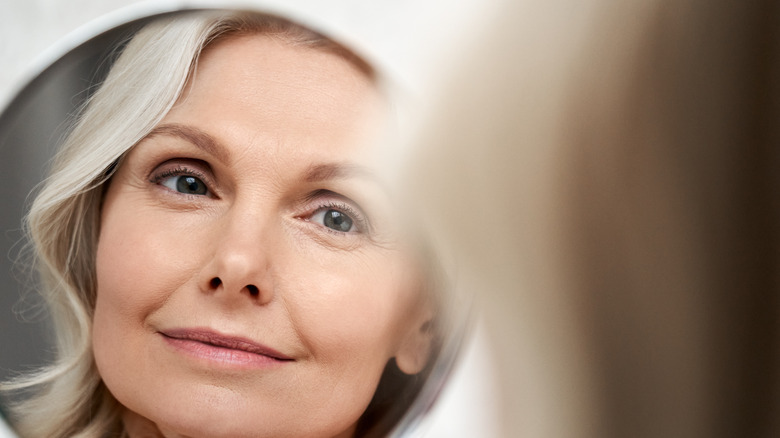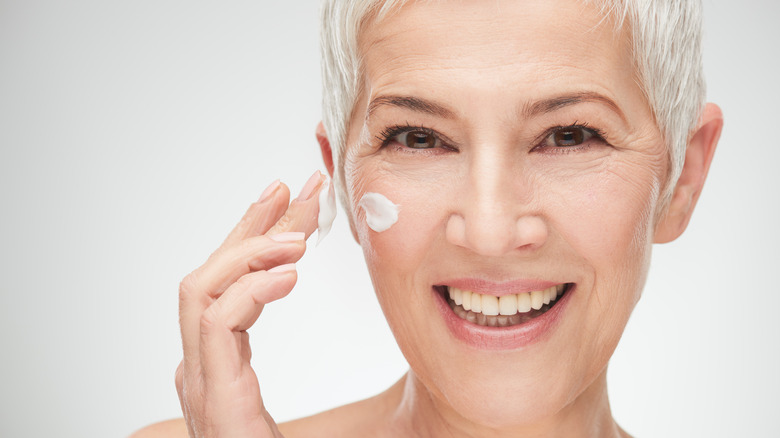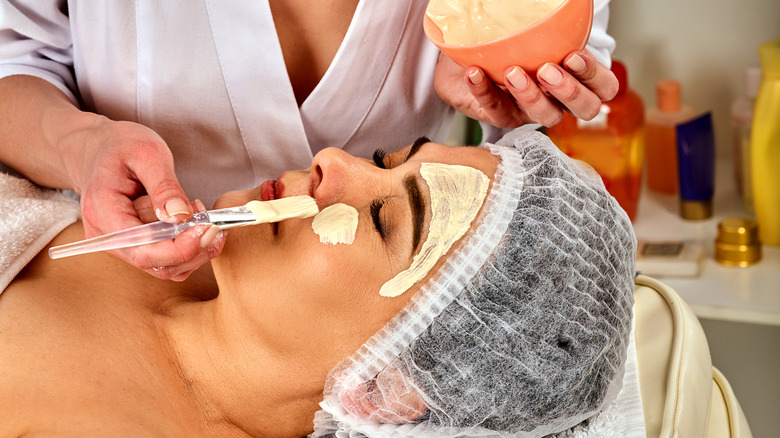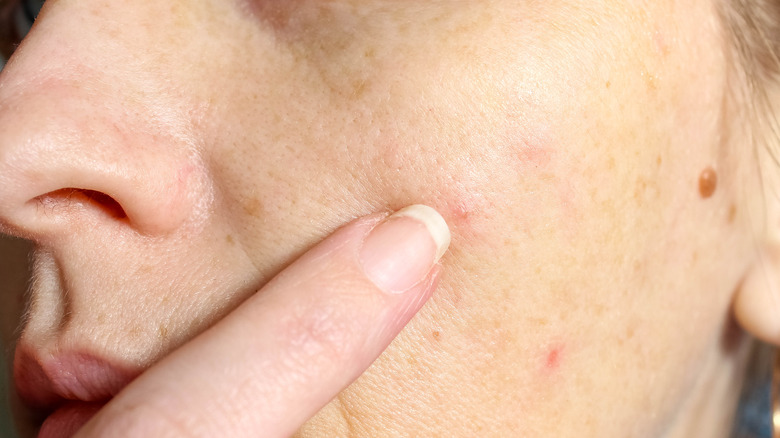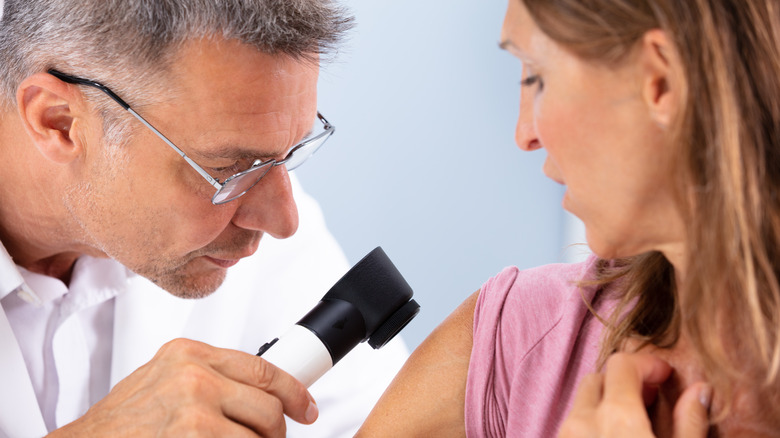How Your Skincare Should Change During Menopause
Menopause is one of those awkward topics that no one likes to talk about. Many women may even feel shame, sensing that this period in their life marks their transition out of womanhood and into some kind of sexless old age. This, of course, is nonsense. Aging, after all, is just a part of life. Of everyone's life, should they be so fortunate. Rather than clinging to the illusion of youth, women need to acknowledge menopause as just another stage in their physical development. It is, however, a stage that may usher in some new concerns at the same time other problems such as period cramps, blood-spotted undies, and birth control pills are receding out of sight in the rearview mirror. (Good riddance!)
One of these concerns during the menopausal years is how the changes in your body should be affecting your skincare routine. Skincare isn't just about beauty, since skin is a part of our bodies. In fact, according to the U.S. National Library of Medicine, the skin is the body's largest organ. Skincare for the menopausal woman isn't about wiping every last trace of aging off your face, since this isn't even possible without extensive, expensive surgery.
The important part about menopausal skincare is making sure that you look and feel your best as you proceed (triumphantly, of course!) into the next stage of your life.
Your skin will need extra moisture
As the estrogen levels in your body drop during menopause, so does your skin's ability to produce its natural oils. Your levels of hyaluronic acid also decrease, which impacts the skin's ability to stay hydrated. What this can add up to is some seriously dry skin.
So what should you do to combat your newly dry skin? The American Academy of Dermatology Association suggests you skip the soap (deodorant soap is a big no-no) and wash with a gentle cleansing cream instead. You may also need to apply moisturizer more often, maybe throughout the day whenever your skin starts to feel a bit tight.
Look for a moisturizer that contains ceramides, glycerin, or the hyaluronic acid your skin is losing, but choose a cream-based one rather than a lotion. Dr. Robyn Gmyrek, a dermatologist, tells Byrdie that lotions, which are water or alcohol-based, don't retain moisture as well as oil-based creams. She also suggests that you moisturize while your skin is still slightly damp so there's some moisture there for the cream to lock in.
Be extremely careful with exfoliating
With age comes fine (and later, not-so-fine) lines and wrinkles, and you're also going to see more dead skin cells. While your instinct may be to scrub, scrub, scrub all the dead cells away maybe even to keep on scrubbing to "erase" those wrinkles, you may be doing your face more harm than good. The American Academy of Dermatology Association explains that menopausal skin is thinner and more delicate than once it was, and it can easily be damaged by too-vigorous attempts at exfoliation.
Lena Korres, co-founder of the Korres skincare line, tells Byrdie that home exfoliation may be safe to do if you are careful to choose a very gentle exfoliating product, adding that you should limit yourself to using it no more than two times in any given week. The American Academy of Dermatology Association, however, takes a more cautious approach, advising that exfoliation should only be done under the supervision of a dermatologist.
Acne could make a surprise reappearance
Pimples, everyone knows, are the price you pay for being a teenager. At this time of your life, you may be young and strong and have your whole future spread out in front of you like a glorious buffet of opportunities, but one glance in the mirror may let you know that those crazy out-of-control hormones are still determined to have the last word. When you grow up, you may feel you've put those "huge zit on your nose the night before your big date" nightmares behind you. In menopause, however, your hormones may want to get in one last insult before they exit the building, so you could find yourself facing the dreaded return of the zits.
Is it time to break out the same arsenal of acne medications you used in your younger days, assuming any of those are still on the market? The American Academy of Dermatology Association says no. Due to the fact that older skin is less resilient and more easily damaged than teen skin, they recommend you stick to gentler acne treatments like washing your face with pore-unclogging salicylic acid. Dr. Gmyrek (via Byrdie) seconds the salicylic wash, but she also suggests you could use a topical adapalane gel up to 3 times per week.
Sunscreen is an absolute must
The older you are, the longer your skin has spent under the sun. If you've diligently applied sunscreen every day since you were a tiny tot, you may have minimal sun damage, but if you're like most of us you maybe tend to forget things from time to time. You may, if you're really unlucky, even be a pale-skinned girl who grew up in an era where a summer sun tan was considered the height of fashion.
Dr. Gmyrek tells Byrdie that, no matter your sunscreen habits in your earlier years, you need it more than ever now. As post-menopausal skin is thinner and more fragile, she says you should be using an SPF 30 sunscreen every time you go outside. You will also need to choose one that says "broad spectrum" on the label in order to make sure that you are protected from UVA rays as well as UVB ones, since SPF only measures UVB protection.
Keep an eye out for signs of skin cancer
While sun exposure can cause wrinkles, lines, and age spots, by far the worst side effect is the increased risk of skin cancer. The longer you live, the higher your chance of developing the disease –- in fact, the Skin Cancer Foundation estimates that, by the age of 70, 1 in 5 Americans will have developed it.
What this means for you, as you hit menopause, is that it's time to start scheduling regular skin cancer screenings since the earlier cancer is detected, the easier it is to treat and the better the prognosis. The American Academy of Dermatology Association also suggests that you practice regular skin cancer self-exams –- they've even published a guide on how to perform them.
They do, however, have one more suggestion as to how to avert a danger you may not have been aware of: before you use any type of age spot treatment, see your dermatologist for a complete skin exam. If you use a product meant to fade age spots on a spot that turns out to be a cancerous growth, it may well fade and become less visible, but the cancer itself will continue to do its damage. If your skin is sending you a danger signal, you'll want to make sure it's coming through loud and clear.
